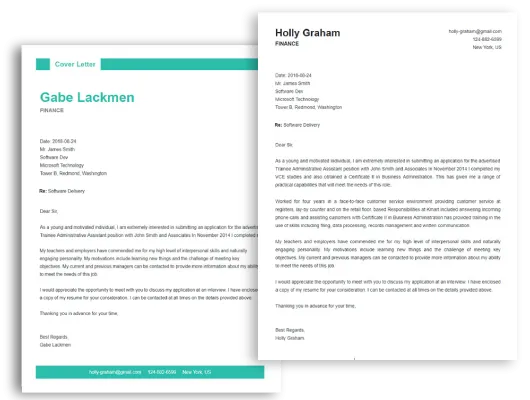Human Resource Intern Cover Letter Top 5 Tips
Crafting a compelling human resource intern cover letter is crucial for landing your dream internship. A well-written cover letter is your chance to make a positive first impression and convince potential employers that you possess the skills and enthusiasm they seek. Many applicants often overlook the importance of a well-crafted cover letter, but it can significantly increase your chances of getting selected for an interview. The purpose of this guide is to equip you with the top five tips to make your human resource intern cover letter stand out from the crowd. By following these guidelines, you will significantly increase your chances of impressing the hiring manager and securing the internship.
Highlight Your Skills
Your cover letter is the perfect place to showcase your relevant skills. Identify the skills that align with the internship requirements and highlight them strategically. These skills could include communication, problem-solving, attention to detail, and knowledge of HR software or tools. Avoid simply listing skills; instead, provide specific examples of how you’ve used these skills in the past. For instance, if you have strong communication skills, you could describe a situation where you successfully mediated a conflict or presented information effectively. Quantify your achievements whenever possible for maximum impact, such as “Successfully managed and resolved 10+ employee inquiries.” Highlighting these skills will give the hiring manager a clear understanding of your capabilities and how you can contribute to their team. Ensure that your skills match the keywords in the job description.
Showcase Relevant Experience
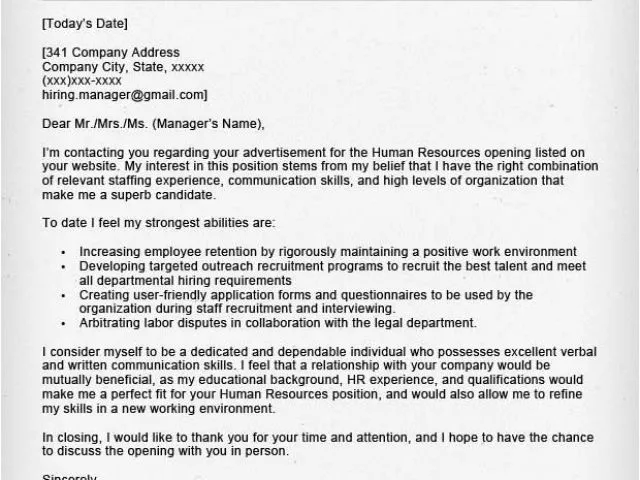
Even if you lack extensive professional experience, emphasize any relevant experience you do have. This could include coursework, projects, volunteer work, or any part-time jobs. For instance, if you’ve taken courses related to HR management or labor relations, mention them, highlighting any relevant projects or assignments. If you’ve volunteered with organizations or participated in activities that required teamwork, communication, or organizational skills, include them. Furthermore, any part-time jobs that involved customer service, data entry, or administrative tasks can demonstrate transferable skills. The key is to connect your past experiences with the requirements of the internship, demonstrating that you are prepared to take on the responsibilities. Frame your experiences in terms of what you learned and the impact you made.
Demonstrate Enthusiasm
Hiring managers want to see genuine enthusiasm for the internship and the company. Show this by expressing your interest in the specific role and the organization’s mission and values. Research the company and tailor your cover letter to align with their culture and goals. Explain why you are particularly interested in this internship, what excites you about the HR field, and what you hope to gain from the experience. Express your excitement to learn from experienced professionals and contribute to the company’s success. Avoid generic statements, and instead, provide specific reasons why you are drawn to the company and the role. Your enthusiasm should be palpable, making the reader eager to meet you. Make sure that your passion shines through.
Tailor Your Letter
A generic cover letter will likely end up in the rejection pile. Tailoring your cover letter to each specific job application is paramount. This means reading the job description carefully and customizing your letter to address the specific requirements and keywords. Highlight the skills and experiences most relevant to the position and explain how they align with the company’s needs. Research the company and use their name, mission, and values to demonstrate that you understand their goals. Addressing the hiring manager directly and referencing specific aspects of the company or role will show that you have taken the time to personalize your application. This personalized approach will demonstrate your commitment to the opportunity and will increase your chances of standing out.
Proofread Carefully
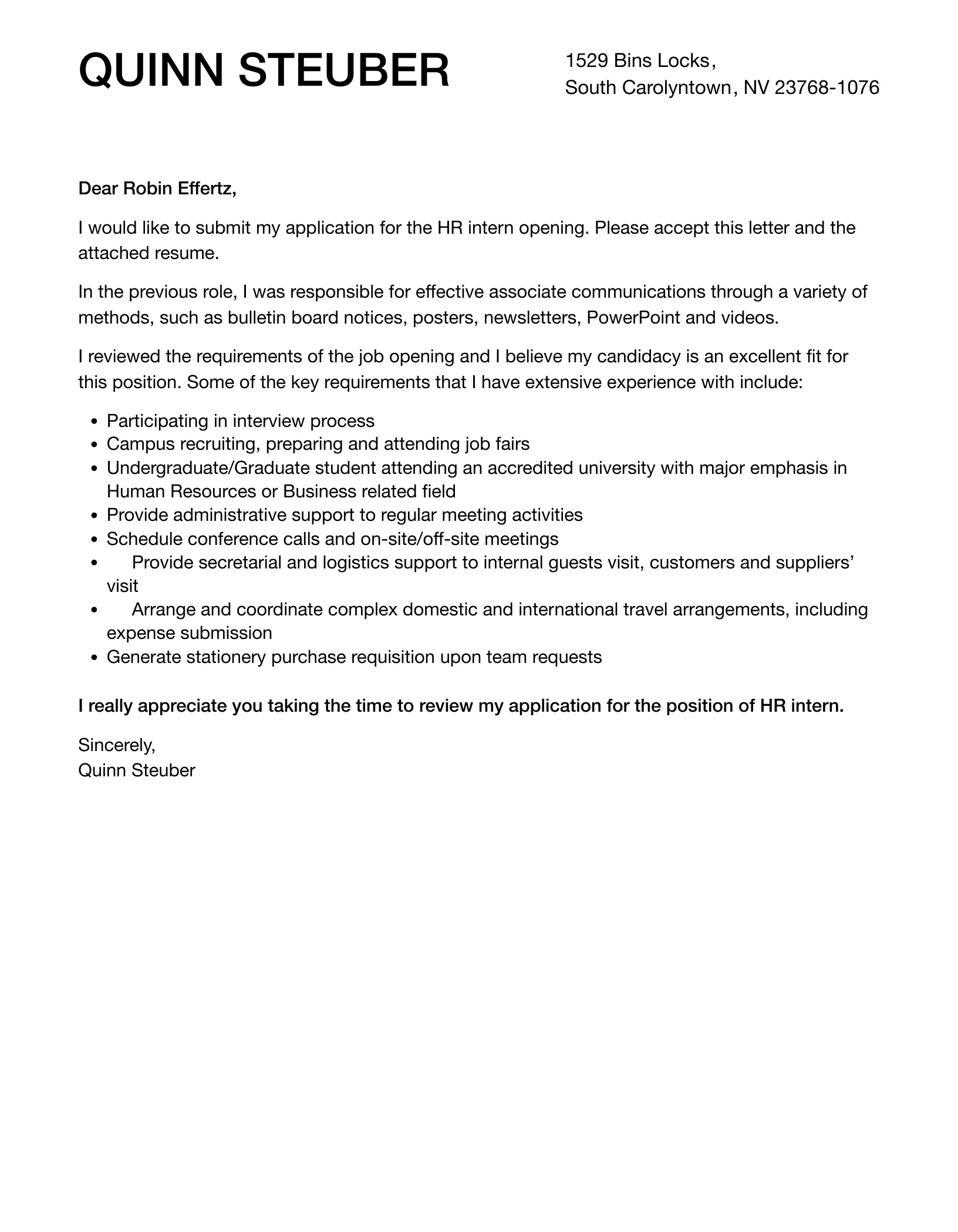
Proofreading is a critical step often overlooked by applicants. Errors in grammar, spelling, or punctuation can immediately disqualify you. Your cover letter is a professional document, and it should reflect your attention to detail and professionalism. Read the letter multiple times, preferably aloud, to catch any mistakes. Use a grammar checker, and have a friend, family member, or career advisor review your letter. Ensure that your writing is clear, concise, and error-free. Errors can be easily avoided by taking the time to review your cover letter carefully. A well-proofread cover letter shows that you value quality and take pride in your work, giving you a clear advantage over other applicants who have not been as careful. Remember, the smallest mistake can undermine an otherwise excellent application.
Skills to Include in a Cover Letter
Communication Skills
Communication skills are vital in HR. Highlight your ability to communicate clearly and effectively, both verbally and in writing. Show examples of your ability to listen actively, provide constructive feedback, and resolve conflicts. This includes your ability to present information in a clear and concise manner, tailoring your message to your audience. Mention your experience in creating reports, presentations, or other documents. Demonstrate your ability to communicate empathetically and build rapport with diverse groups of people. Providing examples where you successfully mediated or negotiated a situation proves your capabilities. Remember to mention specific instances of your communication proficiency.
Organizational Skills
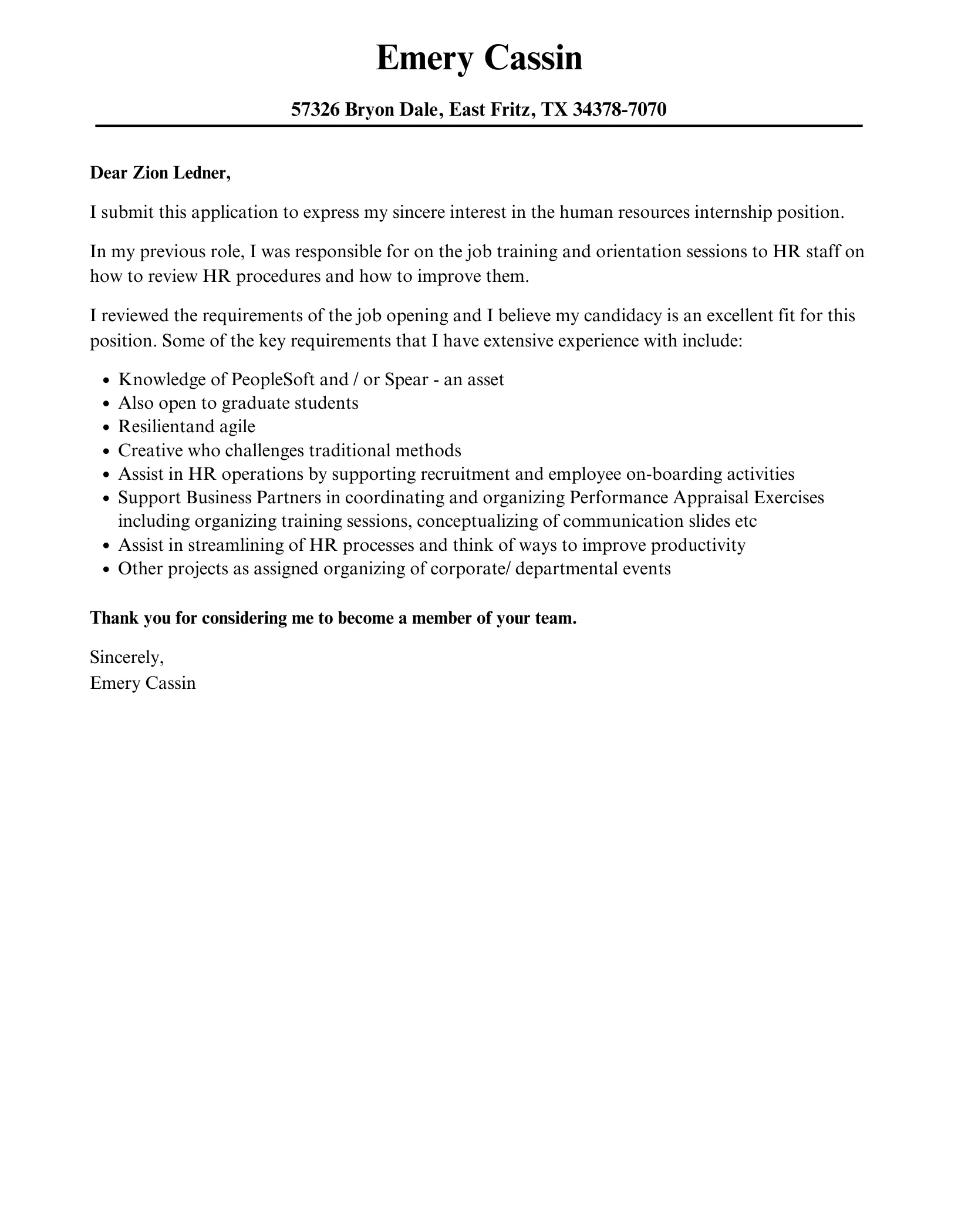
HR professionals must be highly organized. Emphasize your ability to manage tasks, prioritize assignments, and meet deadlines. Describe situations where you have successfully organized projects or events, managed data, or maintained records. Include examples of your proficiency in using organizational tools, such as calendar apps or project management software. Demonstrate your ability to create and maintain systems for efficient workflow. Show how you’ve improved processes or reduced inefficiencies in previous roles. These skills are indispensable in a fast-paced environment. Remember, your organization is a key factor when deciding whether or not to recruit you.
Attention to Detail
Attention to detail is crucial in HR to avoid errors. Provide examples of your ability to meticulously review documents, data, and processes. Highlight any experience in quality control or proofreading. Mention your track record of accuracy and consistency. Detail situations where you’ve identified and corrected errors. Indicate your ability to follow procedures and guidelines precisely. This skill is particularly important when managing sensitive information or handling legal documentation. Accuracy in data entry, record-keeping, and the preparation of official documents is also a key factor, and you must present it.
Teamwork and Collaboration
HR often involves working with others. Highlight your ability to work effectively in teams and collaborate with diverse individuals. Provide examples of successful group projects or team contributions. Showcase your skills in conflict resolution, active listening, and facilitating discussions. Demonstrate your ability to build positive relationships and contribute to a supportive work environment. Mention your experience in mentoring, training, or leading teams. The ability to work cohesively with others is essential for a successful HR professional. Show the hiring manager you’re a team player.
Relevant Experience to Highlight
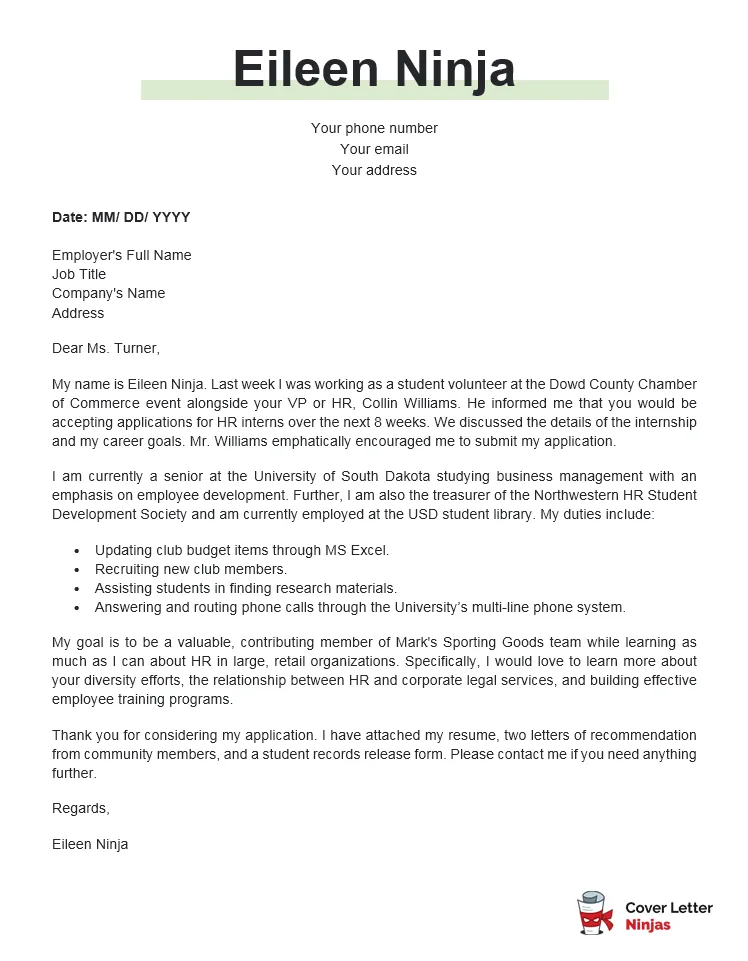
Coursework and Projects
Your academic experience is a significant asset. Mention relevant coursework in HR management, business administration, or related fields. Highlight projects that required you to apply HR principles, such as developing policies, conducting research, or analyzing data. Provide specific details about these projects, including your role, the objectives, and the outcomes. Show your grasp of key HR concepts and your ability to apply them in a practical setting. Any academic achievements, such as high grades or awards, can be mentioned. These experiences showcase your foundational knowledge and commitment to the field. Make sure your courses match the job posting.
Volunteer Work
Volunteering can provide valuable experience. If you’ve volunteered in roles that required communication, organization, or teamwork, highlight them. Mention your involvement in any leadership positions or projects. Showcase skills such as problem-solving, conflict resolution, and customer service. Provide specific examples of how your contributions have benefited the organization. Describe the types of tasks you undertook and the impact you made. Volunteer work demonstrates your commitment to helping others and can provide valuable experience that relates to the HR field. Don’t be afraid to highlight your role.
Internships and Part-time Jobs
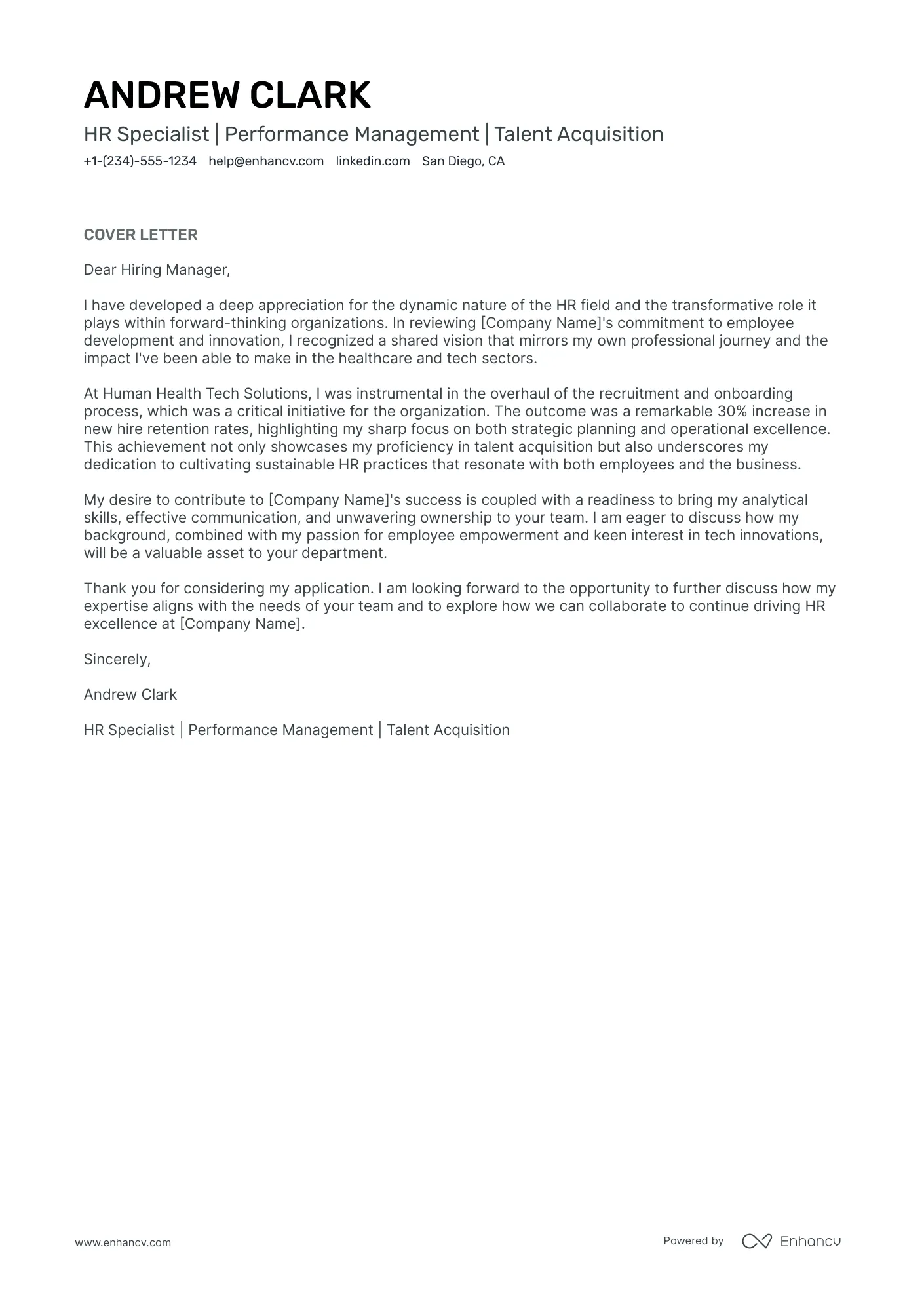
Any work experience, even part-time jobs, can be relevant. Mention any internships or part-time positions you’ve held, even if they’re not directly related to HR. Focus on the skills and experiences that align with the internship requirements. For instance, if you have worked in customer service, emphasize your communication and problem-solving skills. Highlight your experience in data entry, administrative tasks, or office management. Detail any projects you have contributed to or any responsibilities you have taken on. Explain the transferable skills you’ve gained, such as teamwork, time management, and organizational skills. The experience that you present here must match the job description.
Formatting and Presentation
Use a Professional Format
Your cover letter should adhere to a professional format. Use a standard business letter format with a clear and consistent layout. Include your contact information at the top, followed by the date, the hiring manager’s name (if available), and the company’s address. Use a professional font such as Times New Roman or Arial. Maintain consistent spacing and formatting throughout the letter. Avoid using any unprofessional fonts. Proofread carefully for any formatting errors. Maintain the layout so that it’s easy for the hiring manager to read. Make sure the format is compatible with various software.
Keep it Concise
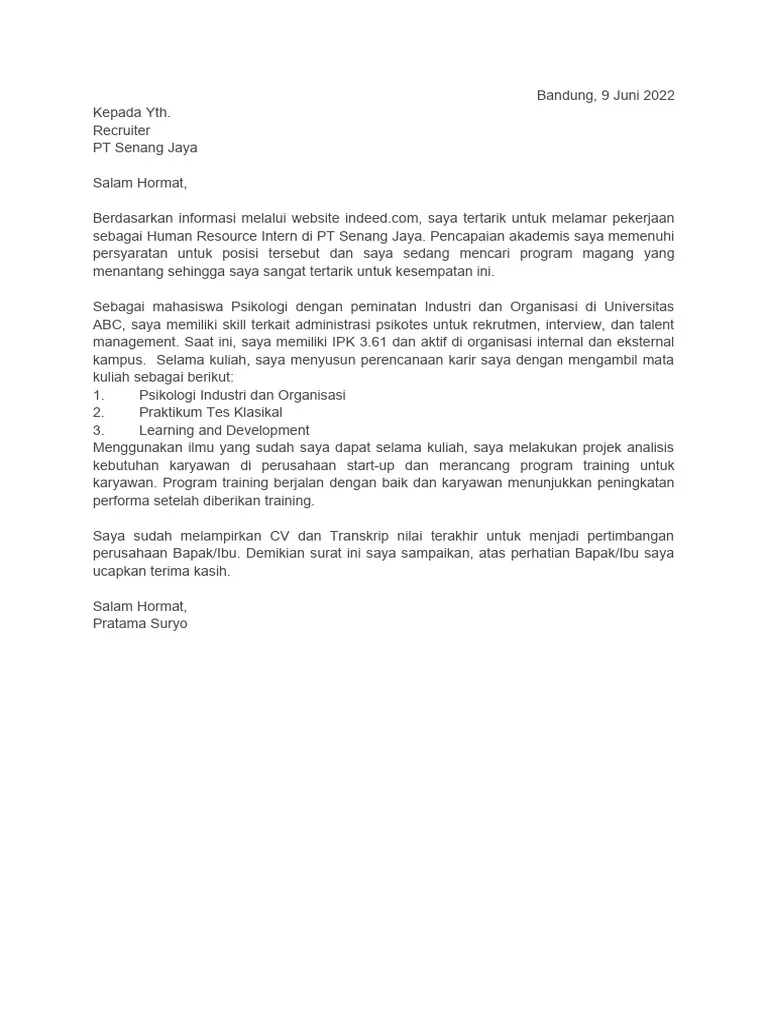
Keep your cover letter concise and to the point. Aim for a letter that is no more than one page long. The hiring manager will likely be reviewing many applications, so avoid unnecessary details. Focus on the most relevant information and highlight the key skills and experiences. Use clear and concise language, and avoid using jargon or overly complicated sentences. Ensure that you directly address the key requirements of the job description. A well-written, concise letter will demonstrate that you value the hiring manager’s time and can communicate effectively. Make sure your points are clear and easy to follow.
Use a Clear and Readable Font
Choosing the right font is crucial for readability. Select a professional font that is easy on the eyes, such as Times New Roman, Arial, or Calibri. Use a font size between 10 and 12 points. Ensure that the font is consistent throughout the letter. Avoid using unusual or overly stylized fonts. The goal is to make your cover letter as easy to read as possible. A clear and readable font allows the hiring manager to quickly scan your letter and grasp the key information. If they can easily digest what you have to say, you’ll be one step closer to your goal. Simple and easy to read is best!
